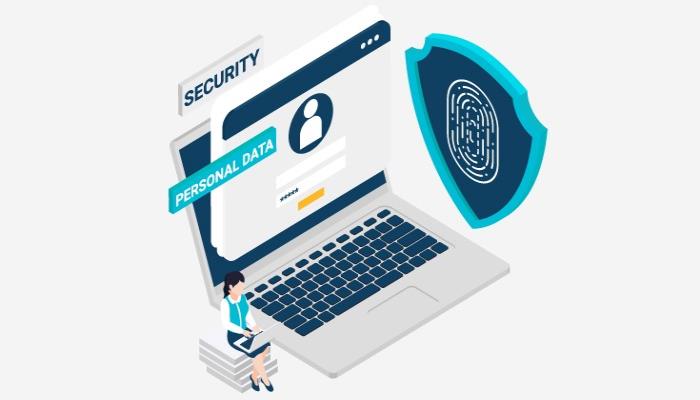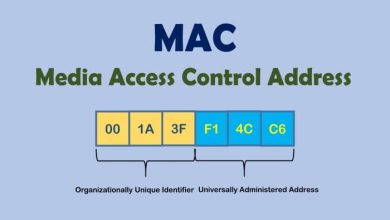How Identity Verification is Reshaping Online Transactions and Security

The digital age has ushered in a new era of convenience, connectivity, and commerce. With the proliferation of online transactions, the need for robust security measures has never been greater.
Identity verification service has become a cornerstone of online security and trust. In this blog post, we will explore how identity verification reshapes online transactions and security and why it is more crucial than ever in today’s digital landscape.
The Evolution of Online Transactions
The internet has revolutionised the way we conduct business and interact with one another. From shopping and banking to social networking and healthcare, online transactions have become integral to our daily lives. However, this convenience has come at a cost, as cybercrime and fraud have increased in tandem with the growth of the digital economy.
Please click here to learn more about: slotxo
The Rise of Online Transactions
The rise of e-commerce platforms, digital payment systems, and mobile applications has transformed how we shop, pay bills, and manage our finances. This shift has been especially accelerated by the COVID-19 pandemic, which forced many businesses and consumers to adapt to digital-first modes of operation.
The Growing Threat of Cybercrime
As online transactions have become more prevalent, cybercriminals have become increasingly sophisticated in their tactics. Phishing attacks, identity theft, and data breaches are just a few examples of the threats individuals and organisations face when conducting business online. The financial and reputational damage caused by these attacks can be devastating.
The Importance of Identity Verification
Identity verification confirms that a person or entity is who they claim to be. While it has been a standard practice for decades, the digital era has given it renewed significance. Here’s why identity verification is crucial in today’s online landscape:
Protecting Against Fraud
Identity verification serves as a vital defence against fraud. By confirming the identity of individuals and entities involved in online transactions, businesses can reduce the risk of fraudulent activities such as account takeover, payment fraud, and identity theft. This not only safeguards their financial interests but also protects the trust of their customers.
Regulatory Compliance
Many industries are subject to strict regulatory requirements regarding customer identification and due diligence. These regulations combat money laundering, terrorism financing, and other illicit activities. Failure to comply with these regulations can result in severe penalties and legal consequences. Identity verification solutions help businesses meet these compliance obligations.
Enhancing User Trust
User trust is essential in the digital world. Customers are more likely to transact with businesses, prioritising their security and privacy. Robust identity verification processes reassure users that their personal information is handled responsibly, ultimately increasing customer retention and loyalty.
The Technologies Behind Identity Verification
Identity verification has evolved significantly with advances in technology. Today, various methods and tools are employed to verify identities online, each with its strengths and weaknesses:
Document Verification
Document verification involves verifying an individual’s identity by examining their official documents, such as passports, driver’s licenses, or government-issued IDs. This method is widely used but can be susceptible to fraud if counterfeit documents are presented.
Biometric Authentication
Biometric authentication relies on unique physical or behavioural characteristics, such as fingerprints, facial recognition, or voice recognition, to verify an individual’s identity. This method offers a high level of security and is difficult to counterfeit.
Knowledge-Based Authentication
Knowledge-based authentication involves asking the user personal questions based on information only they should know, such as their mother’s maiden name or their first pet’s name. While this method is convenient, it can be vulnerable to social engineering attacks if the answers are obtainable through public records or social media.
Two-factor authentication (2FA)
Two-factor authentication combines two or more methods of identity verification to enhance security. For example, a user might need to provide something they know (a password) and something they have (a mobile device) to access their account. 2FA is widely used to protect online accounts.
The Role of Identity Verification in Different Sectors
Identity verification is not limited to a specific industry; it has far-reaching applications across various sectors:
Financial Services
In the financial sector, identity verification is fundamental for customer onboarding, Know Your Customer (KYC) compliance, and anti-money laundering (AML) efforts. Banks, fintech companies, and investment firms rely on robust identity verification processes to safeguard operations and comply with regulatory requirements.
E-commerce
Online retailers use identity verification to combat payment fraud and ensure that customers are genuine. This protects their bottom line and enhances the overall shopping experience by reducing the likelihood of fraudulent transactions.
Healthcare
Identity verification is crucial in healthcare to protect sensitive patient information and prevent medical identity theft. It also ensures that only authorised healthcare professionals can access patient records and prescribe medications.
Travel and Hospitality
The travel and hospitality industry employs identity verification to verify the identity of travellers and guests, especially for international bookings and border control. This helps enhance security and streamline the check-in process.
Government Services
Government agencies use identity verification to confirm the identities of citizens and residents when providing services, distributing benefits, and conducting elections. This ensures that government resources are allocated appropriately and that elections are secure and fair.
Challenges and Concerns
While identity verification is a powerful tool for enhancing security and trust in online transactions, it is not without its challenges and concerns:
Privacy Concerns
Collecting and storing personal data for identity verification raises privacy concerns. Striking the right balance between security and privacy is a challenge that businesses and regulators must address.
User Experience
Identity verification processes should be user-friendly and efficient. Cumbersome or time-consuming procedures can lead to customer frustration and abandonment of transactions.
False Positives and Negatives
Identity verification systems are not infallible and may produce false positives (rejecting legitimate users) or false negatives (accepting fraudulent users). Striking the right balance to minimise these errors is a constant challenge.
Cybersecurity Risks
Identity verification databases are attractive targets for cybercriminals. Protecting these databases from breaches and unauthorised access is essential to maintaining the integrity of identity verification systems.
Conclusion
Identity verification is not just a formality but the linchpin of online security and trust in the digital age. As online transactions continue to shape our lives and businesses, the need for robust identity verification processes becomes increasingly vital. By employing cutting-edge technologies and adherence to best practices, organisations can protect themselves and their customers from the ever-present threat of fraud and cybercrime. The future of online transactions and security depends on our ability to adapt and innovate in the field of identity verification, making it more robust, user-friendly, and secure than ever before.



